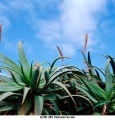LOG IN. UPLOAD PICTURES.
The Philippines has Zambo Mart to help propagate the Chavacano Language.
Difference between revisions of "Aloe Vera"
| Line 88: | Line 88: | ||
File:AloeVeraBlute.JPG|Aloe Vera Flower | File:AloeVeraBlute.JPG|Aloe Vera Flower | ||
File:AloeBlütenknospe.JPG|Aloe Vera Bud | File:AloeBlütenknospe.JPG|Aloe Vera Bud | ||
File:Aloe Vera flower.jpg|aloe vera flower | File:Aloe Vera flower.jpg|Wilted aloe vera flower | ||
File:Starr 030523-0059 Aloe vera.jpg|flower | File:Starr 030523-0059 Aloe vera.jpg|flower | ||
File:Aloë-vera-total.JPG|single aloe plant | File:Aloë-vera-total.JPG|single aloe plant | ||
Revision as of 17:42, 24 January 2015
Herbal Remedies and Medicinal Cures for Diseases, Ailments & Illnesses that afflict Humans and Animals
Aloe Vera •
Astragalus •
Bankoro •
Bilberry •
Bitter Gourd (Ampalaya) •
Bitter Orange •
Black Cohosh •
Cat's Claw •
Chamomile •
Chasteberry •
Coconut •
Cranberry •
Dandelion •
Echinacea •
Ephedra •
European Elder Tree •
Evening Primrose •
Fenugreek •
Feverfew •
Flaxseed •
Garlic •
Ginger •
Ginkgo •
Ginseng (Asian) •
Golden Seal •
Grape Seed •
Green Tea •
Hawthorn •
Hoodia •
Horse Chestnut •
Kava •
Lavender •
Licorice •
Malunggay Moringa Oleifera •
Milk Thistle •
Mistletoe •
Passion Flower •
Peppermint Oil •
Red Clover •
Ringworm Bush (Akapulko) – Cassia alata •
Saw Palmetto •
St. John's Wort •
Tawa Tawa •
Turmeric •
Valerian •
Yohimbe •
accept the bitter to get better
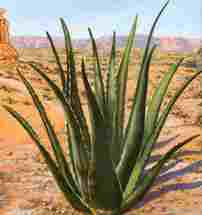 Giant Aloe Vera Plant | |||
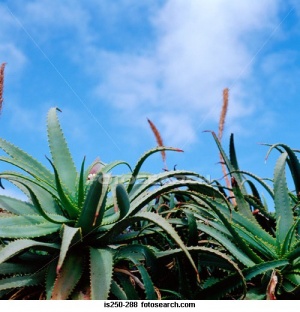 Aloe Vera Plant | |||
| |||
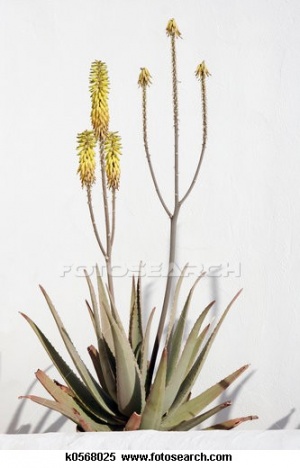 Aloe Vera Flowers | |||
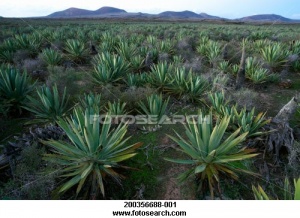 Aloe Vera Plantation | |||
| |||
Aloe Vera
The medicinal herb Aloe Vera as an alternative herbal remedy for burns, diabetes and osteoarthritis - aloe, burn plant, lily of the desert, elephant's gall :
Latin Names--Aloe vera, Aloe barbadensisPicture of Alloe Vera
- Red aloe (Aloe ferox) is known for its tonic effect on digestive functioning. It is also a natural remedy to support healthy bowel movements. Recent research and studies have shown Aloe to be particularly effective in maintaining healthy digestion and routine, healthy stools. (Odes HS, Madar Z. "A double-blind trial of a celandin, aloe vera and psyllium laxative preparation in adult patients with constipation". Digestion. 1991;49(2):65-71). (Langmead L, Feakins RM, Goldthorpe S, et al. "Randomized, double-blind, placebo-controlled trial of oral aloe vera gel for active ulcerative colitis". Aliment.Pharmacol.Ther. 4-1-2004;19(7):739-747.)
What Alloe Vera Is Used For
- Traditionally and herbal remedy for burns, aloe was used topically to heal wounds and for various skin conditions, and orally as a laxative.
- Today, in addition to traditional uses, people take aloe orally to treat a variety of conditions, including diabetes, asthma, epilepsy, and osteoarthritis. People use aloe topically for osteoarthritis, burns, and sunburns.
- Aloe vera gel can be found in hundreds of skin products, including lotions and sunblocks.
- The Food and Drug Administration (FDA) has approved aloe vera as a natural food flavoring.
- Aloe Ferox (Aloe) has been traditionally used in wound healing since ancient times. The Egyptians were using Aloe as early as 1500BC. Aloe contains a number of active compounds that have proven healing properties and an excellent effect on skin health, growth and repair. It is not surprising that Aloe has a history of being a common household remedy and is found in many commercial skin care preparations!
How Aloe Vera Is Used
- Aloe leaves contain a clear gel that is often used as a topical ointment. The green part of the leaf that surrounds the gel can be used to produce a juice or a dried substance (called latex) that is taken by mouth.
- The aloe vera gel can be applied directly to the wound. It can a new cut, abrasion, or an insect bite. The soothing effect of the aloe vera gel can be felt almost immediately.
- The aloe vera gel if applied immediately to a cut or wound, prevents the onset of an infection. The common band-aid can be used over the wound to keep the aloe vera gel in place.
What the Science Says about Alloe Vera
- Aloe latex contains strong laxative compounds. Products made with various components of aloe (aloin, aloe-emodin, and barbaloin) were at one time regulated by the FDA as oral over-the-counter (OTC) laxatives. In 2002, the FDA required that all OTC aloe laxative products be removed from the U.S. market or reformulated because the companies that manufactured them did not provide the necessary safety data.
- Early studies show that topical aloe gel may help heal burns and abrasions. One study, however, showed that aloe gel inhibits healing of deep surgical wounds. Aloe gel does not prevent burns from radiation therapy.
- There is not enough scientific evidence to support aloe vera for any of its other uses.
Side Effects and Cautions about Alloe Vera
- Use of topical aloe vera is not associated with significant side effects. Abdominal cramps and diarrhea have been reported with oral use of aloe vera. Diarrhea, caused by the laxative effect of oral aloe vera, can decrease the absorption of many drugs.
- People with diabetes who use glucose-lowering medication should be cautious if also taking aloe by mouth because preliminary studies suggest aloe may lower blood glucose levels.
- Tell your health care providers about any complementary and alternative practices you use. Give them a full picture of what you do to manage your health. This will help ensure coordinated and safe care.
Types of Aloe Vera Plants
- Red aloe (Aloe ferox) is known for its tonic effect on digestive functioning. It is also a natural remedy to support healthy bowel movements. Recent research and studies have shown Aloe to be particularly effective in maintaining healthy digestion and routine, healthy stools. (Odes HS, Madar Z. "A double-blind trial of a celandin, aloe vera and psyllium laxative preparation in adult patients with constipation". Digestion. 1991;49(2):65-71). (Langmead L, Feakins RM, Goldthorpe S, et al. "Randomized, double-blind, placebo-controlled trial of oral aloe vera gel for active ulcerative colitis". Aliment.Pharmacol.Ther. 4-1-2004;19(7):739-747.) One of the ingredients in Natural Moves™
How to grow Aloe Vera Plants
Aloe vera grows very well indoors and in pots.
Aloe Vera Products
Aloe Vera has been commercially distributed in many ways. Most of the products are extracts of the aloe vera gel.
Aloe Vera Gel
Aloe Vera Gel used for osteoarthritis, burns and sunburns, It is relatively easy to care for the aloe vera plant. The aloe vera (Aloe barbadensis) plant is about 95% water therefore, Aloe vera prospers beautifully in frost-free climates. Well-drained sandy soil, or sandy loam with moderate sunlight is suitable for the aloe vera plant. Aloe vera plants are great as indoor or house plants. Make sure that you use quality pots with proper drainage holes. Wider pots rather than deeper pots are better because Aloes have a shallow, spreading root system. You should allow the potted aloe vera plants to completely dry out prior to re-watering. Aloe vera becomes dormant in winter, at which time very little moisture is required. Do not expose aloe vera plants to extreme cold temperatures.
There are over 150 species of Aloe Vera, and they are mostly native of South Africa. The aloe vera gel which is gathered from inside the leaf of the aloe vera plant has excellent healing properties especially when applied to cuts and burns. When the aloe vera gel is applied to skin which is sunburnt, the cooling effect of the aloe vera gel gives immediate relief.
Herbal Remedy Products with Aloe Vera as part of the ingredients

|
|
Historical uses of Aloe Vera
Historical use of various aloe species is well documented. Documentation of the clinical effectiveness is available, although relatively limited.
Of the 500+ species, only a few were used traditionally as a herbal medicine, aloe vera again being the most commonly used species. Also included are A. perryi and A. ferox. The Ancient Greeks and Romans used aloe vera to treat wounds. In the Middle Ages, the yellowish liquid found inside the leaves was favored as a purgative. Unprocessed aloe that contains aloin is generally used as a laxative, whereas processed aloe vera juice does not usually contain significant aloin.
Some species, particularly aloe vera, are used in alternative medicine and first aid. Both the translucent inner pulp and the resinous yellow aloin from wounding the aloe plant are used externally to relieve skin discomforts. As an herbal medicine, aloe vera juice is commonly used internally to relieve digestive discomfort.
There have been relatively few studies about possible benefits of aloe gel taken internally. Components of Aloe may inhibit tumor growth. There have been some studies in animal models which indicate that extracts of Aloe have a significant anti-hyperglycemic effect, and may be useful in treating Type II diabetes. These studies have not been confirmed in humans.



